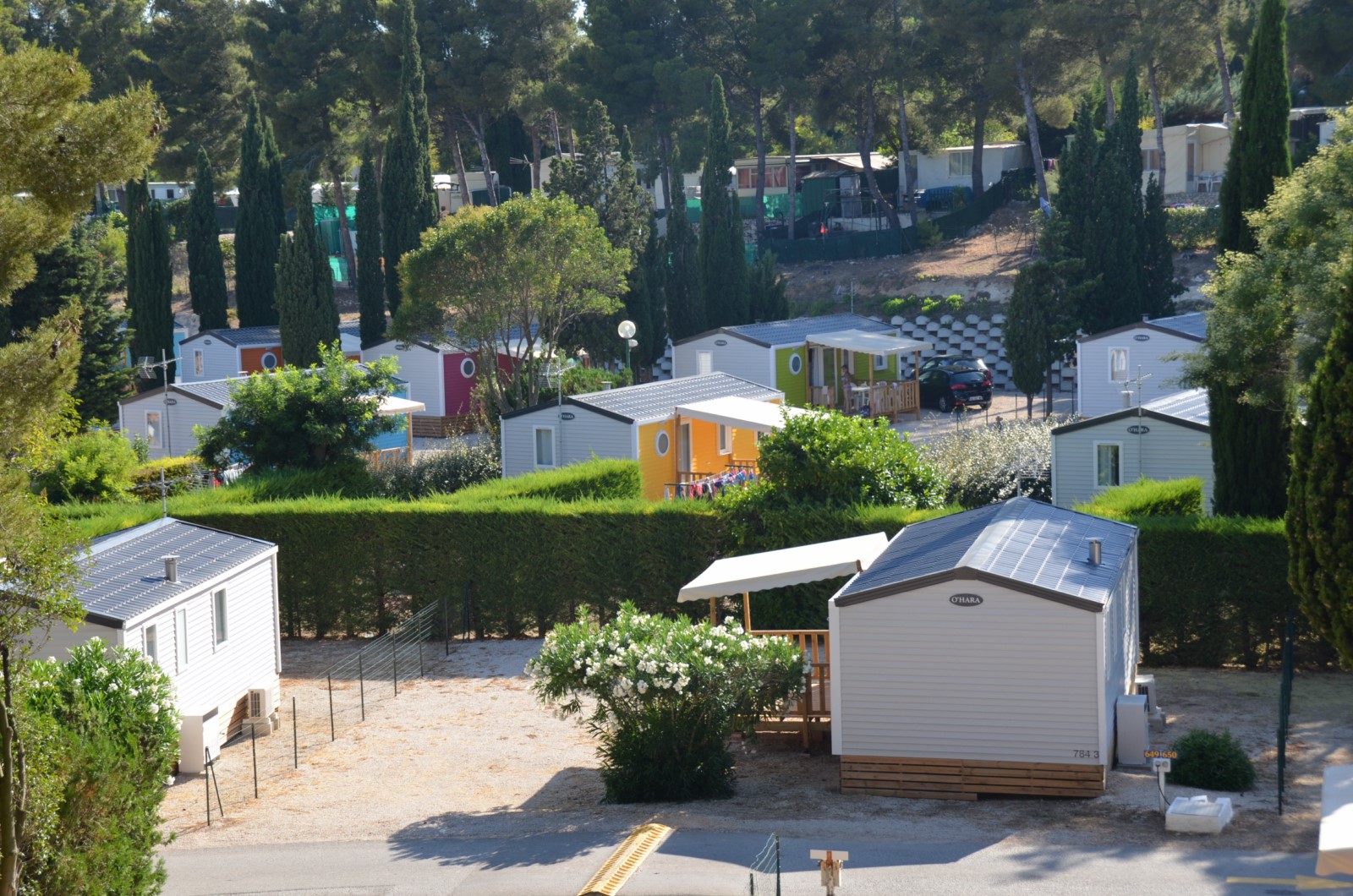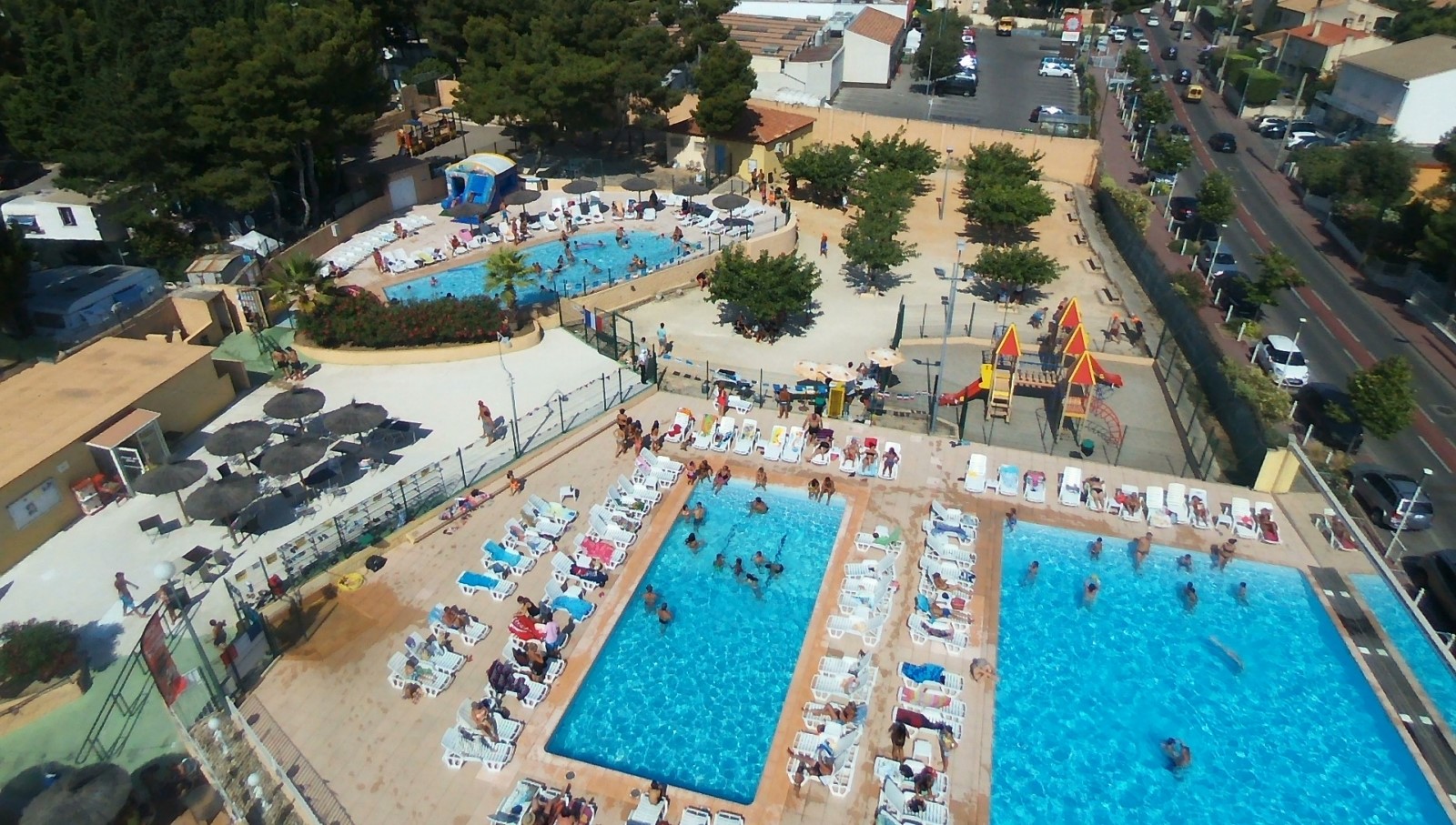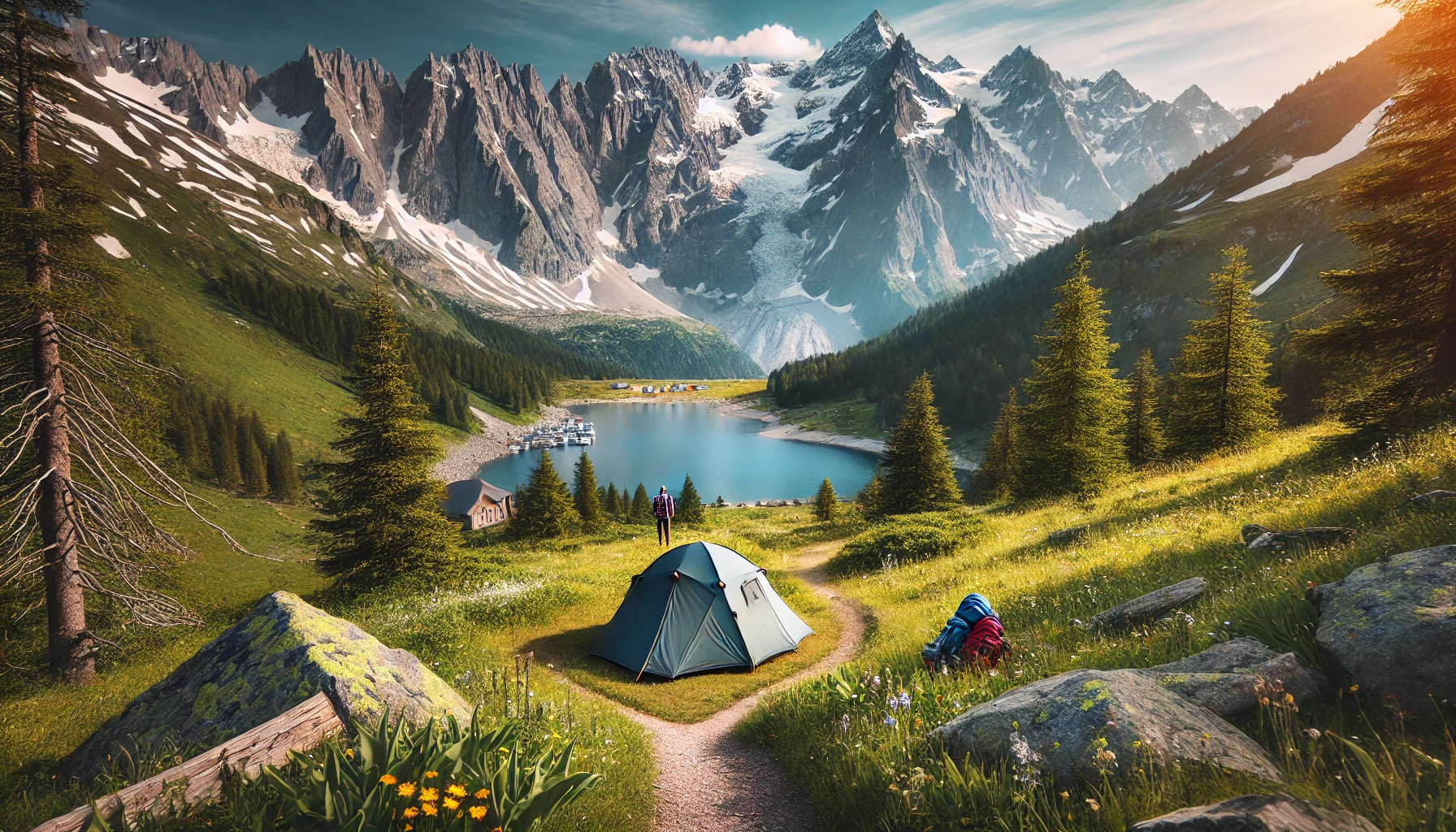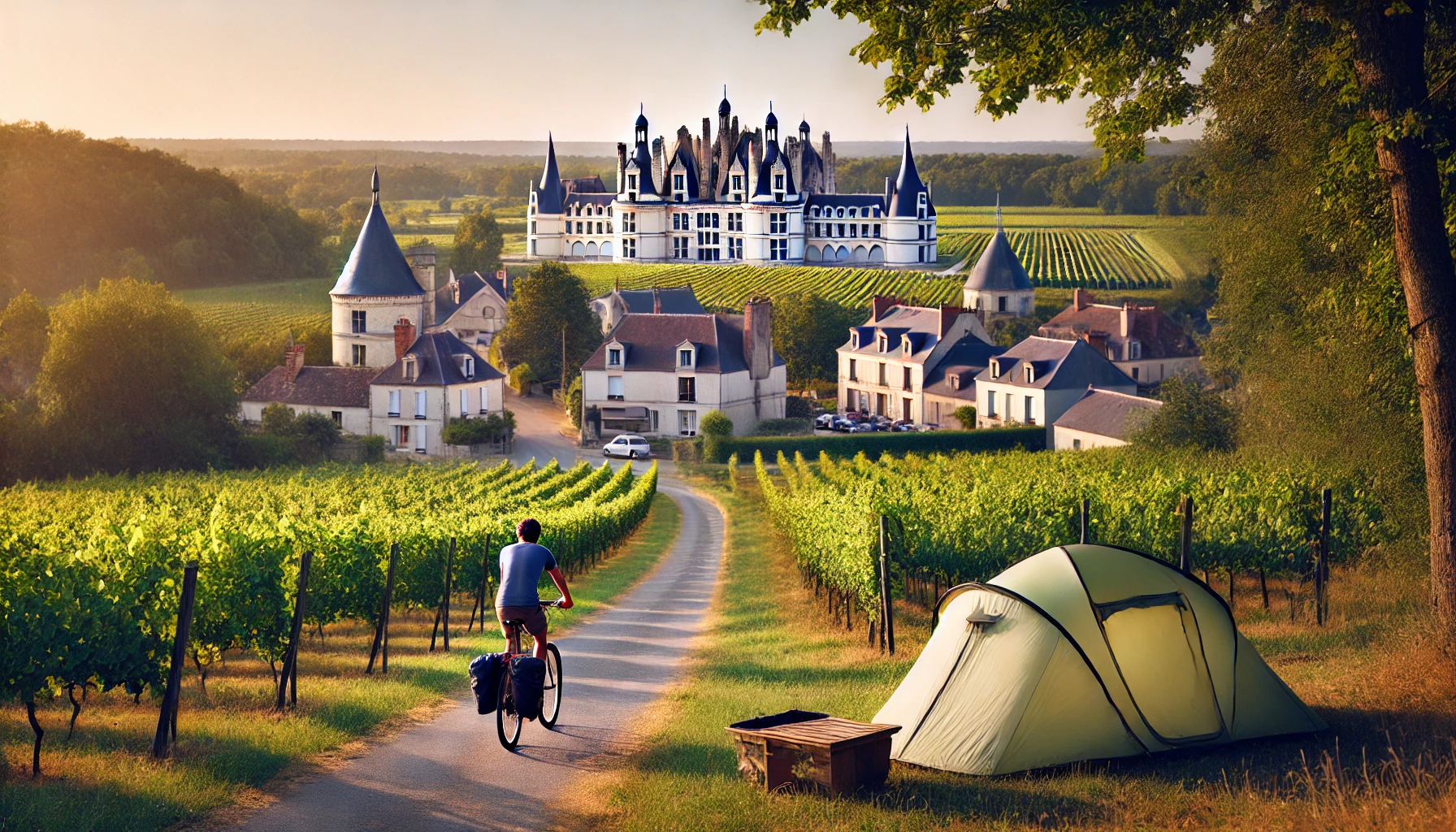










Camping in France is an amazing opportunity to immerse yourself in the country's diverse natural and cultural treasures. Read our detailed travel guide to learn more about every corner of France. Here we will study the best camping spots, important environmental tips and safety precautions like phone number tracker to help you have an unforgettable holiday while preserving nature and looking after your well-being.
France, a country rich in history and diverse landscapes, is the ideal destination for camping holidaymakers. Every corner of this country offers many opportunities for camping in the great outdoors. Here we will take a look at the best camping spots in France from the rocky shores of Brittany to the scenic valleys of the Loire for your unforgettable experience and a chance to see the beauty of French nature:

1. Loire Valley
Information: Known for its stunning châteaux, rolling vineyards, and charming villages, the place is a UNESCO World Heritage site and an ideal camping destination.
Highlights:
Visit Château de Chambord and Château de Chenonceau
Explore the vineyards and enjoy wine tasting
Cycle along the Loire à Vélo, a scenic bike route
2. French Alps
Information: The French Alps offer breathtaking mountain scenery, making it a top spot for camping and outdoor activities.
Highlights:
Hike or ski in Chamonix
Explore the stunning Vanoise National Park
Visit Annecy, known as the “Venice of the Alps”
3. Provence
Information: Provence is famous for its lavender fields, olive groves, and charming hilltop villages. It offers a beautiful and serene camping experience.
Highlights:
Discover the Verdon Gorge, known as the "Grand Canyon of Europe"
Explore the historic cities of Avignon and Aix-en-Provence
Enjoy the fragrant lavender fields in Valensole
4. Brittany
Information: Brittany's rugged coastline, sandy beaches, and ancient standing stones make it a unique and beautiful camping destination.
Highlights:
Visit the Pink Granite Coast
Explore the medieval town of Dinan
Discover the megalithic site of Carnac
5. Normandy
Information: Normandy is rich in history and natural beauty, with its dramatic coastline, historic sites, and charming countryside.
Highlights:
Visit the D-Day landing beaches
Explore the iconic Mont Saint-Michel
Enjoy the scenic landscapes of the Normandy Bocage
6. Dordogne
Information: The Dordogne region is known for its prehistoric caves, medieval castles, and picturesque villages.
Highlights:
Explore the Lascaux Caves with prehistoric paintings
Visit the beautiful village of Sarlat-la-Canéda
Canoe along the Dordogne River
7. Corsica
Information: Corsica, known as the “Island of Beauty,” offers stunning coastal and mountain scenery, making it a paradise for campers.
Highlights:
Hike the famous GR20 trail
Relax on the beautiful beaches of Calvi and Porto-Vecchio
Explore the historic town of Bonifacio
8. Pyrenees
Information: The Pyrenees mountains offer stunning landscapes and a variety of outdoor activities, from hiking to skiing.
Highlights:
Visit the Pyrenees National Park
Hike to the Cirque de Gavarnie
Explore the picturesque villages of the Pyrenees
9. Camargue
Information: The Camargue region is known for its wild, untamed landscape, featuring salt marshes, wild horses, and pink flamingos.
Highlights:
Discover the unique wildlife of the Camargue
Visit the historic town of Arles
Enjoy the beautiful beaches of Saintes-Maries-de-la-Mer
10. Auvergne
Information: Auvergne is a volcanic region with stunning natural landscapes, including the Chaîne des Puys, a series of dormant volcanoes.
Highlights:
Hike up the Puy de Dôme
Explore the Vulcania amusement park dedicated to volcanoes
Visit the charming town of Clermont-Ferrand
Best Time to Visit: Late spring to early autumn (May to September) offers the best weather for camping.
Campground Facilities: French campgrounds often offer excellent facilities, including swimming pools, restaurants, and recreational activities.
Reservations: During peak season, it’s advisable to book your campsite in advance.
Local Regulations: Be aware of local camping regulations and respect the natural environment.
Exploring the best camping sites in France, you will discover an amazing variety of landscapes and cultural attractions. Each region from the above list offers amazing opportunities for recreation and adventure. Whether you prefer a relaxing holiday by the river or an active vacation in the mountains, France is the perfect place for an unforgettable camping holiday.

Moving towards sustainability is an increasingly important aspect of modern tourism, and camping in France is no exception. Given the country's diverse natural and cultural landscapes, travelers can enjoy its beauty without damaging the environment. Let us consider the best eco-friendly tips for camping in different regions of France according to the list of places above. Our tips will help you have a low-impact holiday and support local communities.
1. Loire Valley
Eco-friendly Campsites: Choose eco-friendly campsites that use renewable energy and practice waste recycling.
Leave No Trace: Always carry out all your trash and dispose of it properly. Avoid disturbing wildlife and stick to designated paths.
Local Produce: Support local farmers by buying local produce, wines, and goods.
2. French Alps
Respect Wildlife: Maintain a safe distance from wildlife and never feed animals.
Sustainable Travel: Use public transportation or carpool to reduce carbon emissions. Consider hiking or cycling to explore the area.
Water Conservation: Use water sparingly and avoid contaminating water sources.
3. Provence
Campfire Safety: Use designated fire pits and be mindful of fire regulations, especially in dry areas. Always ensure your fire is completely out before leaving.
Minimal Impact: Stick to established campsites and trails to minimize your impact on the environment.
Reusable Items: Bring reusable items such as water bottles, utensils, and containers to reduce waste.
4. Brittany
Beach Clean-ups: Participate in or organize beach clean-ups to help keep the coastline free of litter.
Sustainable Seafood: Enjoy local seafood but choose sustainable options to support marine conservation.
Eco-friendly Activities: Opt for activities like kayaking, cycling, and hiking that have minimal environmental impact.
5. Normandy
Historical Preservation: Be respectful of historical sites and landmarks. Avoid touching or climbing on them to preserve their integrity.
Green Energy: Choose campsites that use green energy sources such as solar or wind power.
Local Shopping: Support local artisans and businesses to contribute to the local economy.
6. Dordogne
Eco-friendly Canoeing: When canoeing on the Dordogne River, use eco-friendly canoes and avoid disturbing the riverbanks.
Cave Conservation: Follow all guidelines when visiting prehistoric caves to help preserve these ancient sites.
Organic Products: Purchase organic and locally grown food to reduce your carbon footprint.
7. Corsica
Marine Protection: Be mindful of the marine environment when snorkeling or diving. Do not touch or take anything from the ocean.
Reusable Bags: Use reusable bags when shopping to minimize plastic waste.
Leave Natural Objects: Leave rocks, plants, and other natural objects where you find them.
8. Pyrenees
Eco-friendly Hiking: Stick to marked trails to prevent soil erosion and damage to vegetation.
Solar Chargers: Use solar-powered chargers for your electronic devices.
Respect Local Cultures: Be respectful of local traditions and practices in the small villages you visit.
9. Camargue
Wildlife Viewing: Observe animals from a distance and do not disturb their natural behaviors.
Biodegradable Products: Use biodegradable soaps and detergents to minimize pollution.
Reduce Vehicle Use: Explore the area on foot, by bike, or on horseback to reduce vehicle emissions.
10. Auvergne
Volcano Conservation: Respect the natural formations and avoid causing any damage to the volcanic landscapes.
Low-impact Camping: Use lightweight and low-impact camping gear.
Green Transport: Use environmentally friendly transport options such as trains or buses to reach the region.
Plan Ahead: Research and choose eco-friendly campsites and destinations that prioritize sustainability.
Pack Light: Bring only what you need to reduce the weight and impact of your trip.
Educate Yourself: Learn about the local environment and the best practices for minimizing your impact.
Community Engagement: Participate in local conservation projects or clean-up activities if available.
Respect Nature: Always leave nature as you found it and inspire others to do the same.
You can make your camping in France environmentally responsible and aware. due to our recommendations. Regardless of whether you're exploring the castles of the Loire, enjoying the nature of the Pyrenees or holidaying on the coast of Brittany, your contribution to conservation and supporting local communities will be significant. Remember that every little thing is important - from choosing eco-friendly campgrounds to using reusable items and participating in environmental initiatives. Thus, you will be able to save the beauty of nature for future generations and get an unforgettable travel experience.
Traveling and camping can be an unforgettable experience, but it's important to keep your safety in mind to make sure your holiday goes smoothly and enjoyably. No matter where you're traveling to, following simple safety precautions can help you avoid trouble and keep you comfortable in the great outdoors. Here we will look at important safety tips to help you stay safe and enjoy every moment of your holiday adventure.
Stay Connected
Share Your Itinerary: Share your travel plans with a trusted friend or family member. Update them on any changes.
Location Tracking Apps: Use apps like Number Tracker or Google Maps to share your real-time location with trusted contacts. Some apps like Number Tracker can also provide you with some additional traveling tips or safety recommendations due to built-innAI assistant and make you able to notify your trusted contacts in case of emergency.
Pack the Essentials
First Aid Kit: Carry a comprehensive first aid kit with bandages, antiseptics, pain relievers, and any personal medications.
Navigation Tools: Bring a map, compass, and a GPS device. Ensure your phone is loaded with offline maps.
Survival Gear: Pack items like a multi-tool, flashlight, whistle, fire starter, and emergency blanket.
Protect Yourself from the Elements
Weather-appropriate Clothing: Dress in layers to adapt to changing weather conditions. Include a waterproof jacket and sturdy footwear.
Sun Protection: Use sunscreen, wear a hat, and bring sunglasses to protect yourself from UV rays.
Shelter: Ensure your tent or shelter is suitable for the expected weather.
Wildlife Safety
Know the Local Wildlife: Understand what animals inhabit the area and how to avoid encounters.
Store Food Properly: Use bear-proof containers or hang food from trees if necessary to keep it away from wildlife.
Mental Well-being
Stay Calm: In any challenging situation, stay calm and think clearly. Panic can worsen any situation.
Mindfulness: Take time to relax and enjoy your surroundings. Practice mindfulness to reduce stress and enhance your experience.
Secure Your Belongings
Anti-theft Gear: Use anti-theft backpacks and travel gear with lockable zippers. Keep valuables like passports, cash, and electronics secure.
Spread Your Valuables: Don’t keep all your money and important documents in one place. Spread them across different bags or pockets to minimize loss if one is stolen.
Local Laws and Regulations
Know the Rules: Familiarize yourself with local laws and regulations to avoid inadvertently breaking the law.
Respect Authority: Respect local law enforcement and authorities. Carry your identification and necessary documents at all times.
Trust Your Instincts
Listen to Your Gut: If something doesn’t feel right, trust your instincts and take action to ensure your safety. This could mean leaving an area, avoiding certain people, or seeking help.
These safety tips will help you feel safer and more confident when traveling and camping. Keeping in touch with loved ones, proper equipment, taking care of your physical and mental health, as well as following local laws and customs are all key to a successful and safe journey. Trust your instincts and be aware of your surroundings so that your holiday leaves only positive impressions and memories.
Due to our tips above you will be able to organize the perfect campsite in France, enjoying the beauty of nature and respecting the environment. Every detail of your trip can take into account the importance of environmental responsibility and personal safety. Keeping in touch with loved ones, being properly equipped and being aware of local laws and customs are all key to a successful and safe holiday. May your journey bring only positive emotions.